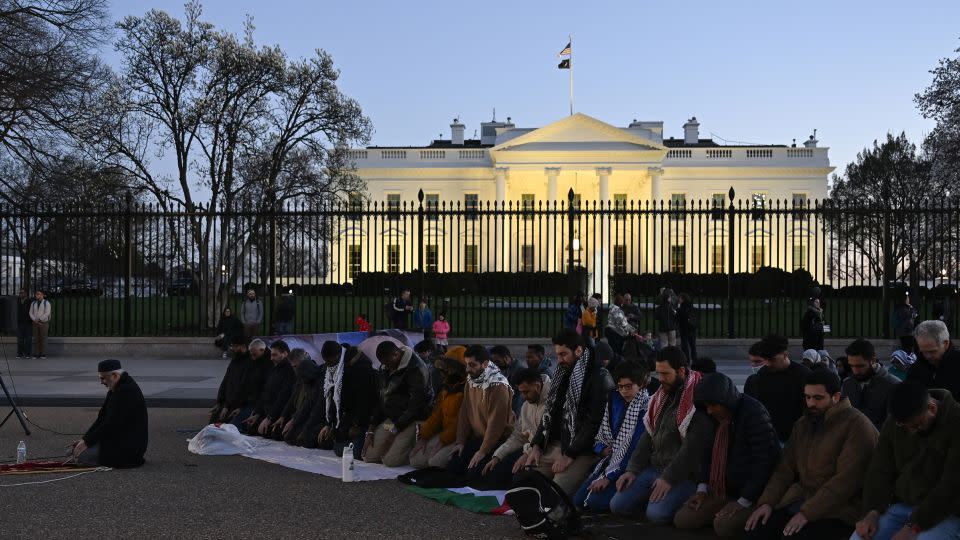White House to host scaled-back iftar dinner amid tensions with Arab and Muslim Americans

President Joe Biden is expected to host a significantly scaled-down iftar dinner at the White House on Tuesday to commemorate Ramadan, three sources familiar with the plans told CNN, a reflection of the tension between the administration and Arab and Muslim American communities over the Israel-Hamas war.
Several people who were invited to the dinner have declined, sources said, citing frustration with the administration’s support of Israel amid the humanitarian crisis in Gaza.
Vice President Kamala Harris, national security adviser Jake Sullivan, senior White House aides and fewer than a dozen invited guests are expected to attend the small gathering, a senior administration official said.
Last year, the White House did not hold an iftar dinner – the breaking of the daily fast after sundown – but hosted nearly 350 people for a reception celebrating Eid al-Fitr, a festival marking the end of Ramadan.
This year, Ramadan comes as more than 30,000 people have been killed since Hamas attacked Israel on October 7, according to the Gaza health ministry, amid a bloody bombing and ground campaign by Israel. Biden has called for a temporary ceasefire but has stopped short of halting arms provisions to Israel.
Officials are hoping the dinner will provide an opportunity for the guests to directly speak with the president and share their concerns about the Israel-Hamas conflict, according to a senior administration official.
White House officials have held several meetings with prominent Arab American and Muslim leaders in various cities. Last month, senior White House officials met with Arab, Muslim and Palestinian American community leaders in Chicago. Tom Perez, the White House director of intergovernmental affairs, and Steve Benjamin, director of public engagement, participated in the meeting, among others. But some of the invited participants declined to attend due to the humanitarian crisis in Gaza.
Anger and concern about the administration’s handling of the conflict is also presenting political problems for Biden, including in battleground states such as Michigan, home to more than 200,000 Muslim American voters. In the state’s Democratic primary in February, more than 100,000 Democratic primary voters chose “uncommitted” to send a message to the president. Biden has also been repeatedly interrupted by activists on the campaign trail.
And in a sign of the scaled-back nature of this year’s Ramadan commemorations, Layla Elabed, campaign manager for Listen to Michigan, which led the “uncommitted” effort, participated in last year’s Eid al-Fitr event but did not receive an invitation this year. Elabed, who is also the sister of Democratic Rep. Rashida Tlaib of Michigan, told CNN she would have declined an invitation due to the administration’s response to the unfolding violence in Gaza.
Last week, the White House said it would commemorate Ramadan but declined to provide further details about the event. “We have done that the last couple years. We’re committed to doing that,” press secretary Karine Jean-Pierre said then.
Asked about the iftar dinner at Monday’s news briefing, Jean-Pierre declined to comment.
For more CNN news and newsletters create an account at CNN.com


